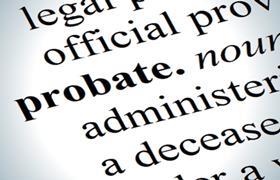A High Court judge has delivered clarity on the operation of damages-based agreements by confirming that if no damages are awarded, no costs can be claimed for legal representation.
The ruling of Mr Justice Dias in Reeves v Frain & McKinnon relates to a £100m probate dispute. Claimant Louise Reeves had sought a declaration on the validity of a 2014 will made by her late father. The London Litigation Partnership Ltd (trading as LLP Solicitors) successfully acted for the second and fourth defendants, the son and grandson of the deceased.
In 2022, a judge ruled that the 2014 will was invalid and ordered Reeves to pay 70% of the defendants’ costs.
The defendants had funded their case through two DBAs, with their bills of costs split into parts reflecting an initial private retainer, the costs incurred under the DBA, and a part for a subsequent ‘new’ private retainer that was entered into after ‘success’.
Earlier this year Costs Judge Brown found that the DBAs were unenforceable because they did not comply with the rules, most pertinently the Damages-Based Agreements Regulations 2013. DBAs were not valid where no sum was recovered - the defendants were challenging a will.

Mr Justice Dexter Dias agreed that the DBAs were ‘unlawful and unenforceable’, adding that ‘it would be wrong in principle to authorise irresolute, inconsistent and half-hearted compliance with the [Courts and Legal Services Act 1990] and the regulations.
‘The solicitors could have taken on instructions under CFAs,’ said the judge. ‘They chose not to. It seems to me that the DBA Rules are clear and the consequences of non-compliance very well known.’
In summary, Dias ruled that ‘the DBAs in this case are unenforceable for want of recovery of anything from the respondent before the end of the proceedings’. LLP is therefore unable to recover claimed fees estimated at over £1.6m.
Reeves, who was represented by Stokoe Partnership, commented: ‘I am absolutely thrilled with this win. This case highlights an important principle, that payment arrangements must be fair, proportionate, and protected against abuse or exploitation. Solicitors should not be allowed to have too much skin in the game.’
Stokoe Partnership commented: ’This judgment provides much-needed clarity on the operation of damages-based agreements. The court has confirmed that such agreements must strictly comply with the statutory framework if they are to be enforceable. The decision has important implications for the wider use of DBAs in complex litigation.’
LLP is understood to be planning an appeal. The firm has been approached for comment.



























20 Readers' comments